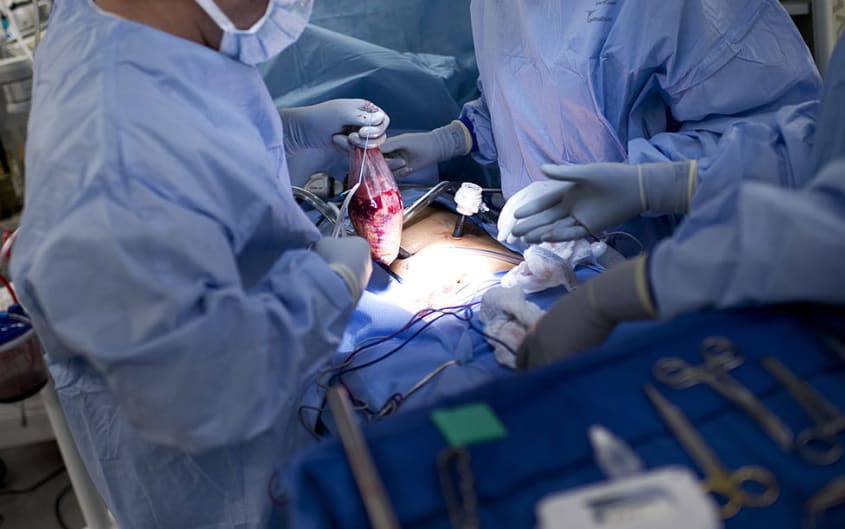Transplant surgeons report successfully testing a pig kidney on a human, in organ transplant breakthrough

Surgeons in New York successfully attached a kidney from a genetically modified pig to a brain-dead woman for two days in September, and the kidney immediately began to work with no signs of rejection, the medical team reported Tuesday. "It was better than I think we even expected," Dr. Robert Montgomery, who lead the team at NYU Langone Health, tells The New York Times. "It just looked like any transplant I've ever done from a living donor. A lot of kidneys from deceased people don't work right away, and take days or weeks to start. This worked immediately."
Humans have been experimenting with xenotransplantation — animal-to-human transplants — for hundreds of years, starting with blood transfusions and finding brief success with primate organs starting in the 1960s. "Pigs have advantages over monkeys and apes," The Associated Press reports. "They are produced for food, so using them for organs raises fewer ethical concerns. Pigs have large litters, short gestation periods, and organs comparable to humans." But they also have a sugar called alpha-gal in their cells that leads to immediate organ rejection in humans.
The pig whose kidney was used last month was one of dozens genetically engineered by a company called Revivicor, a subsidiary of United Therapeutics, to remove the gene that produces the sugar.
Researchers not involved in September's transplant agreed the experiment was potentially transformational, but they differed in their predictions about how long it might be before living humans start getting kidney, heart, and liver transplant from genetically modified pigs. Some scientists said it could be as soon as a few months, but most said there are still too many unanswered questions about pig organs in humans.
Still, there is a clear need. More than 100,000 people in the U.S. are on transplant waiting lists, 90,240 of them in need of a kidney. About 12 people on the kidney list die every day while waiting, and hundreds of thousands of people survive on kidney dialysis and are not even eligible for transplants. Kidneys account for 23,401 of the 39,717 U.S. organ transplants last year, according to the nonprofit Organ Sharing.
You may also like
How one group's plan to out GOP lawmakers who attended Jan. 6 proved futile
Republicans pitching inflation as Democrats' downfall ahead of midterms: 'Voters are nervous'

